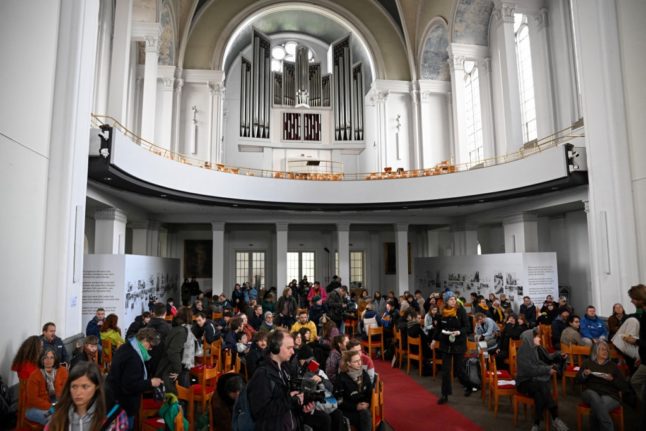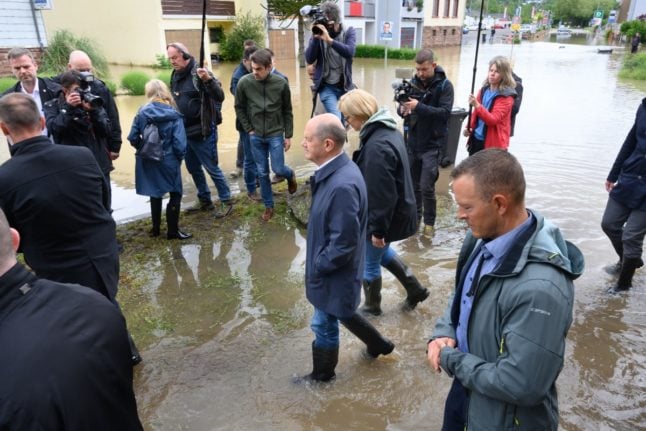Other members of the Letzte Generation (Last Generation) group were having a vegan brunch buffet in the pews, minutes before they were to march out through the imposing doors of Berlin’s St. Thomas Church for their latest demonstration to press the government to do more for the climate.
The Protestant church has become the unlikely staging point for the climate activists in their latest two-week campaign to bring Berlin’s traffic to a standstill by glueing themselves onto the asphalt.
In northeastern Berlin, Gethsemane Church — a key site in the peaceful revolution that brought down the Berlin Wall — is hosting an open discussion on climate change every evening this week, before handing the baton to another church next week.
Although politicians including leading members of Chancellor Olaf Scholz’s government have blasted Letzte Generation’s road blockade protests, the churches have thrown open their doors to the activists.
“We want to contribute to allowing the participants to remain in peace,” said the St. Thomas Church’s council in a statement.
“The radicalisation of the climate movement is the expression of the despair that too little is being done for the protection of the climate and thereby for the preservation of Creation. We’re taking this despair seriously and confronting it,” they added.
The churches’ action is not without controversy, as surveys suggest a majority of the public frown on Letzte Generation’s protests.
In a recent poll by national broadcaster ZDF, 82 percent of respondents felt the street blockades went too far.
Scholz’s government, including the Greens, have also spoken out against the protests. Vice Chancellor Robert Habeck of the Greens has said the street blockades were “not a helpful contribution to climate protection” because they don’t win consensus, rather they “irritate people”.
“The supposed saviours of the world in a church — what hypocrisy,” charged Focus magazine in a column.
‘Jesus would have approved’
Amid the accusations flying at the protesters, pastor Aljona Hofmann at Gethsemane Church said it was all the more important for both sides to have a platform to communicate directly and peacefully.
“The strength of the church is to bring together people with different opinions, in order to sound out what we have in common and where do we diverge,” said the pastor.
At her church in 1989, dissidents including environmental activists held candlelight vigils against the East German regime, helping build the popular pressure that toppled the despised Wall.
Hofmann warned against drawing parallels with the church’s actions under communism. “We’re not living now in a dictatorship,” she stressed. “Each period has its own challenges.”
She acknowledged, too, that not everyone in the congregation supported Letzte Generation’s modus operandi, but argued that it was vital to get people to “step out of their bubbles” and speak with each other.
“Letzte Generation’s method is to hold sit-ins. That is perhaps not the method of other people.”
“Each person must find his or her own format, but what’s important is to begin to think about what can I or what can we, as a society, do” on the issue of climate protection, she said.
Activist Axel Hake, 54, said the churches’ contribution “show how strong the backing from society is”.
“It was in the last autumn that relevant groups in the society, including churches, began showing solidarity with us…,” he said. “That is a real signal that we are anchored in society.”
To those in the congregation who question the churches’ action, activist Cosima Santoro, 68, herself a Catholic, said: “I think Jesus Christ would have fitted well with Letzte Generation.
“He also caused disruptions. He still disrupts today.”



 Please whitelist us to continue reading.
Please whitelist us to continue reading.
Member comments